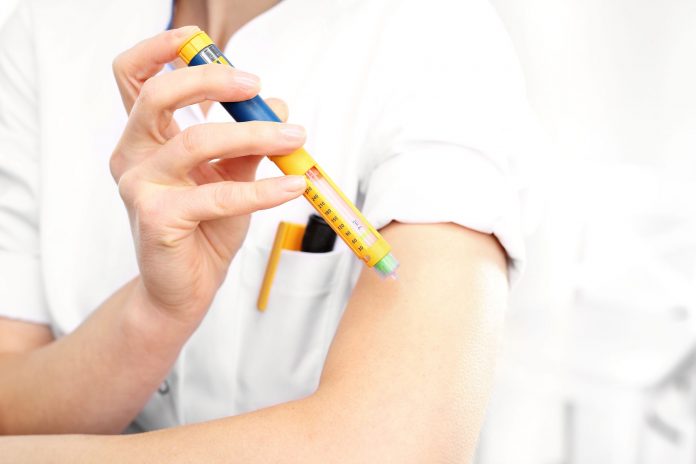A 2015 report released by the Centers for Disease Control found that nearly thirty million people in the United States had diabetes (about ten percent of the total population). The same report also found an additional seventy million people are at risk to develop diabetes in the next five years. These alarming figures are only expected to increase in the near future.
Managing diabetes usually entails a restrictive diet, regular physical activity, and regularly taken medication. Approximately 30 percent of diabetics require regular insulin injections to manage their condition. Those with type 1 diabetes are unable to produce insulin and typically require multiple daily injections to prolong their lives.
Tragically, although insulin is indispensable for many people with diabetes, it is also quickly becoming unaffordable. From 2012 to 2016, the price of insulin doubled. In 2016, the average person with type 1 diabetes spent nearly $6,000 on insulin per year. The American Diabetic Association found people with diabetes spent over $15 billion on insulin 2017.
When a life-saving medication becomes unaffordable, patients become desperate. Skyrocketing insulin prices have led many diabetics to limit (or ration) the amount of insulin they use to make financial ends meet. The trade-off is deadly. Not using enough insulin increases the risk of long-term complications or falling into a diabetic coma. Survey results published in the Journal of the American Medical Association Internal Medicine finds nearly 30 percent of diabetics ration their insulin use.
To avoid financial hardship and medical complications, many diabetics have turned to black markets.
Some turn to the internet, where second-hand markets are providing solutions. For example, numerous kinds of insulin are available with 24-hour shipping from websites such as www.canadianinsulin.com. Millions of U.S. citizens engage in such transactions. Domestically, Facebook, Craigslist, E-bay, and other websites also provide ways for those needing insulin and those willing to sell it to make an exchange.
However, buying insulin online, reselling insulin, and even giving it away is illegal in the United States. These barriers work to complicate how willing buyers and (re)sellers can exchange. For example, some insulins must remain at room temperature, or they expire prematurely. Operating on the black market makes this and other safety standards a secondary matter, increasing the risk of buying and using expired insulin, which can be harmful.
Others cross country borders to take advantage of cheaper foreign prices. A recently published article in the Washington Post reports that Minnesotan Lija Greensied, the mother of a diabetic child, went with five other people to Canada and “paid about $1,200 for drugs that would have cost them $12,000 in the United States.” Elated, Lija noted, “It had been years since I had 10 vials [about a year’s supply of insulin] in my hands.” Others have had similar success traveling to Mexico to buy insulin.
But bringing prescription drugs across the U.S. border is also illegal. Those who attempt to bring foreign drugs into the U.S. risk having their medication confiscated or facing criminal charges. Although the Food and Drug Administration makes some allowances, they are best selectively enforced. Purchasing drugs in foreign countries also poses the risk of receiving counterfeit medications.
The rise in black markets for insulin provides both a deeply concerning picture of the harmful effects of regulation and the incredible ability of international competition to curb pressing healthcare concerns. Although drug importation policy between countries with different quality standards and pricing strategies is complex, the efforts of millions of U.S. patients to obtain cheaper foreign drugs indicate solutions are possible.
With President Trump considering reforming drug importation policy to lower prescription drug costs, let’s hope the struggles of many diabetics to navigate black markets and prolong their lives provides enough motive to liberalize foreign drug access. Managing diabetes is challenging. Managing diabetes and poorly designed policy only makes already difficult situations more taxing.
